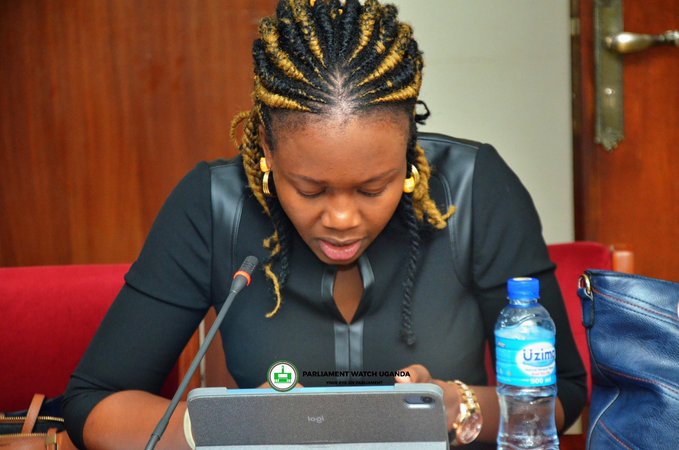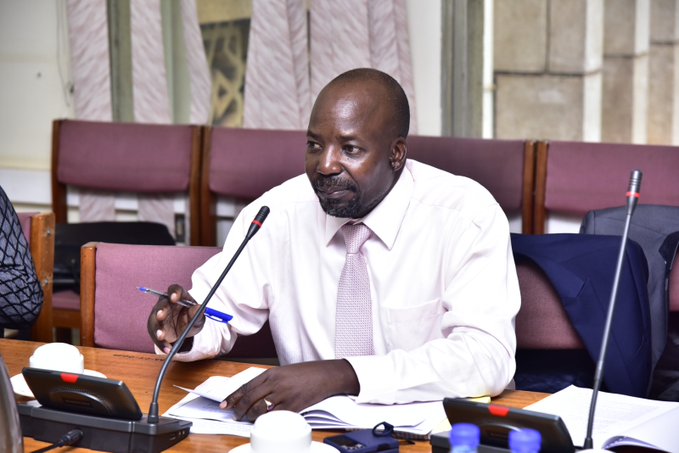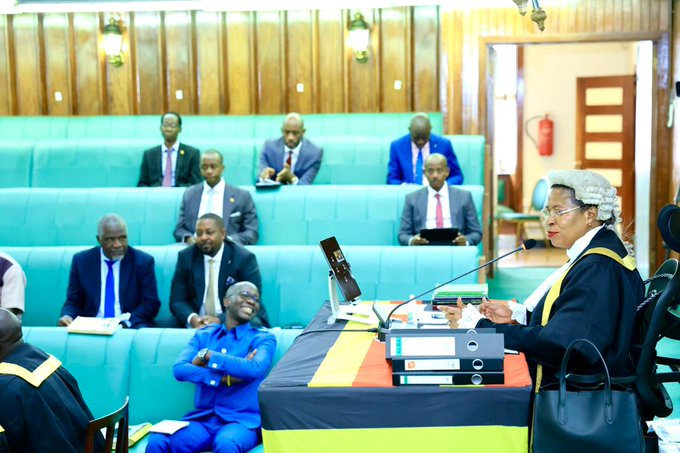A section of lawmakers is calling for the legalisation of prostitution in Uganda. Prostitution is the act of exchanging sexual activity for payment.
The act is illegal in Uganda, but it is still widespread. Many people turn to prostitution because of poverty and lack of other opportunities. The Penal Code Act criminalises various activities related to sex work, including prostitution, living on the earnings of prostitution, aiding and abetting prostitution, and operating brothels.
The call to legalise prostitution was made on Tuesday when the Legal & Parliamentary Affairs Committee started scrutinising proposals made by Anna Adeke (Soroti District Woman Representative) in the Sexual Offences Bill, 2024).
Adeke wants a jail term of 10 years to be imposed on anyone who amicably settles sexual offences like; rape, aggravated rape and defilement, aggravated defilement, child grooming, etc. in Uganda.
Adeke also proposed tough measures of dealing with past sexual offenders, calling for the establishment of a Sexual Offenders Register that will have details of the individual, crimes they committed, and the register will be managed by National Identification and Registrations Authority (NIRA).

In clause 36 of the Bill, Adeke proposed a jail term of 7 years to be imposed on anyone who fails to disclose their sexual offence conviction while seeking for employment, while all employers in Uganda will also be required to cross check with NIRA to establish if the prospective employee wasn’t convicted of any past sexual offence before approved for employment especially in the care of children or vulnerable people.
Legalise Prostitution
MPs on the Joint Committee of Legal and Gender rejected the proposal to maintain prostitution as an offence in Uganda and instead called on the Government to regulate and start collecting taxes from sex workers.
The proposal was made by Fox Odoi (West Budama North East) during the consideration of The Sexual Offences Bill 2024, which was recently tabled by Adeke, in which she proposed to maintain prostitution as a crime in Uganda but expand the scope by including male prostitutes, other than the tradition offence that only punished women for the same acts.
“I strongly feel, we should legalise prostitution, we should regulate that sector, promote it, and make some money from it. For us as legislators, our forte isn’t morality. Morality is for the reverends, canons and the Fathers,” said Odoi.
His remarks were in response to Adeke’s earlier request to the Committee to delete clauses 13 and 14 where she had proposed to impose a two-year jail term on anyone found liable on conviction for indulging in prostitution and have the same punishment meted on a person who engages in a sexual act with a prostitute.

Adeke noted, “Maybe the Committee will find it fit to delete it, my consultations were very difficult, and some people wanted it to stay. I for one thought we would repeal it and take it out. The only difference is that we made it gender neutral because it isn’t only women that do prostitution, because there are also make prostitutes.”
A survey found that 42% of female sex workers reported being raped and half reported physical assault in the past year. Other studies found that 49–82.2% of sex workers had experienced at least one form of client-initiated violence in the previous 6 months.
Spreading HIV to Minors
A section of MPs rejected the proposal to have the spreading of HIV to minors during acts of sexual violence to be included among grounds for aggravated rape, arguing that such an ingredient doesn’t only reinforce stigma, but such cases are hard to prove because some Ugandans aren’t aware of their HIV status and some with the disease aren’t taking the ARV drugs.
Adeke had proposed the spreading of HIV/AIDs by suspects of sexual offenders to minors to be included as a ground for aggravated rape.
“The Director of Public Prosecution (DPP) appeared before us (Parliament’s Human Rights Committee) and pleaded with us to repeal the HIV Control and Prevention Act simply because it stigmatizes people, they are paid to prosecute people under that law. Being HIV positive must not be an aggravating circumstance. The other issue is a person who knowingly transmits HIV,” said Odoi in protest.
He added: “The position of the DPP when we interacted with her was, it is practically impossible to prove knowledge of an offender. Because, there are many people who aren’t on ARVs treatment but they have HIV. So, when you test them after the commission, they will turn out HIV positive.”

One in three female sex workers and sexually exploited children in Uganda are living with HIV. The prevalence is highest among those aged 35 to 49, at 54%. 81% of female sex workers faced stigma while seeking healthcare services. Most did not want to be identified as sex workers by healthcare providers.
Death Penalty for Rapists?
Odoi also rejected the proposal to have rapists suffer the death penalty, wondering why Adeke would propose such a draconian punishment yet there are more vile crimes like mass murder, and genocide which don’t carry the death penalty.
“In principle, I don’t support the death penalty as punishment for any offence, and as a country, I thought we had moved away from this position. So, I thought that when you introduced this law, you were going to do away with the death penalty for all the offences,” said Odoi.
Capital punishment is a legal penalty in Uganda. The death penalty was likely last carried out in 1999, although some sources say the last execution in Uganda took place in 2005.











